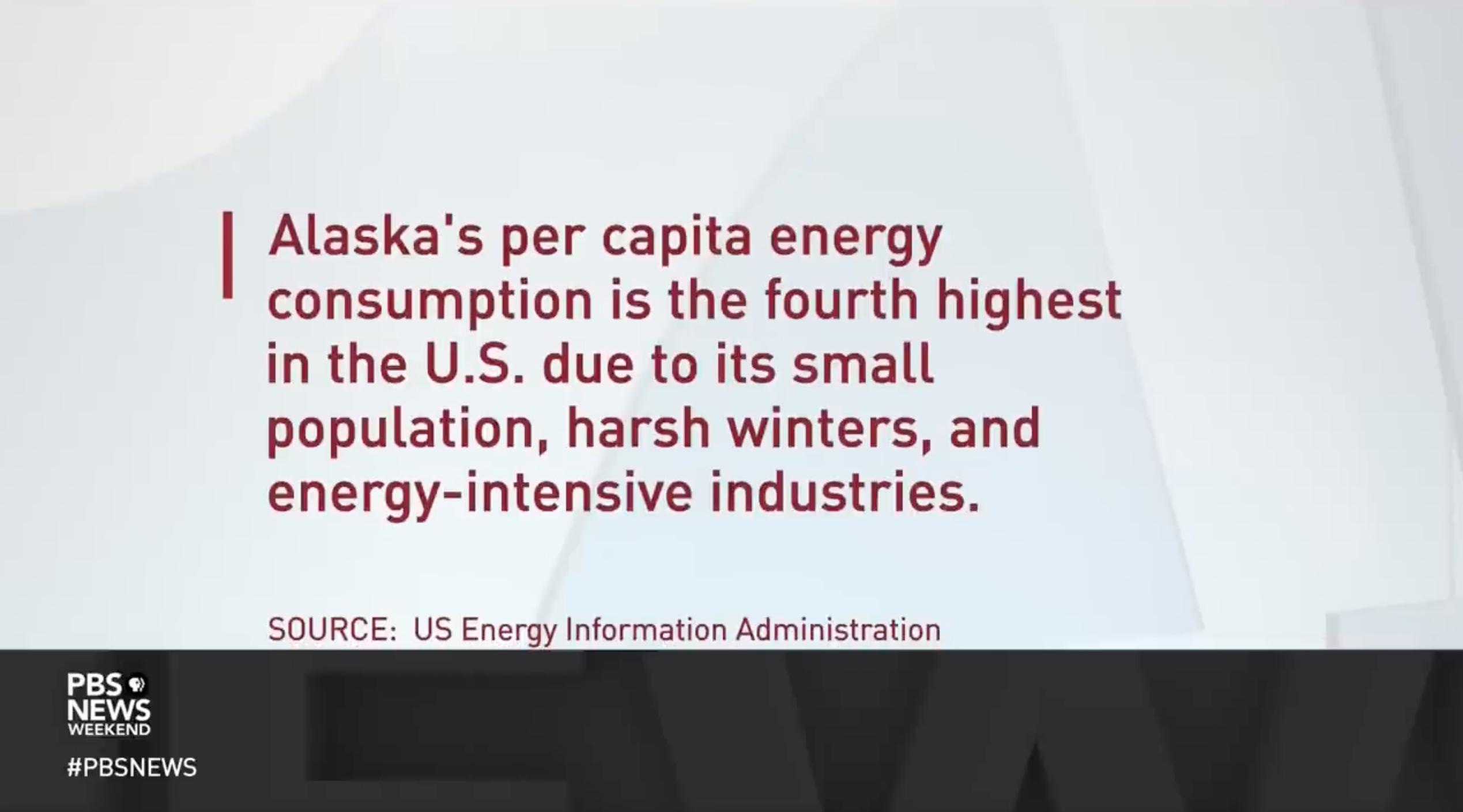PBS NewsHour segments often end with little fact-blurbs as text overlays, and the January 22, 2023 How an Alaska village’s switch to renewable energy helps local Native economies ends with the printed factoid:
Alaska's per capita energy consumption is the fourth highest in the U.S. due to its small population, harsh winters, and energy-intensive industries:
SOURCE: US Energy Information Administration
Why would the smallness of Alaska's population be a factor in its per-capita energy consumption ranking?
